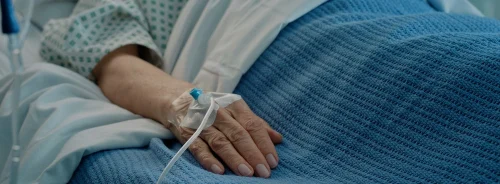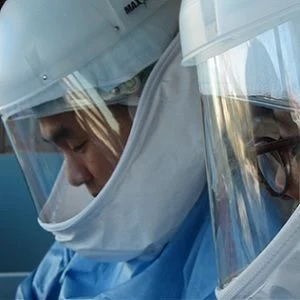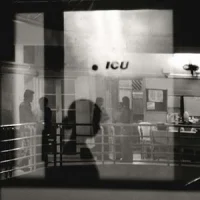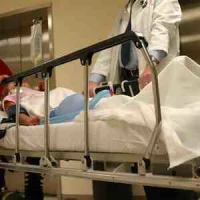The Chicago Ebola Response Network's (CERN) response to the Ebola epidemic in 2014-2015 has provided a roadmap for how a regional public health network can anticipate and manage public health emergencies, according to a study published in the journal Clinical Infectious Diseases.
CERN — composed of Rush University Medical Center, University of Chicago Medicine, Lurie Children's Hospital and Northwestern Memorial Hospital — was formed in October 2014 and coordinated by the Chicago Department of Public Health (CDPH) to receive and manage suspected cases during the Ebola virus epidemic.
"Managing events in a geographic region like Chicago, or Los Angeles, is largely impractical for any one organisation," says the study's lead author Dr. Omar Lateef, chief medical officer and associate professor at Rush.
By sharing the expertise, risk and resources among four major Chicago academic medical centres, Chicago created a sustainable network to respond to complicated public health emergencies like Ebola but also bioterrorism, natural disasters, pandemics and emerging infections, Dr. Lateef explains.
Each CERN hospital formed a core care team to take care of any suspected Ebola patients. Core care teams are small groups of physicians and nurses with expertise in intensive care and infection control supplemented by other clinicians from key support areas. All were rigorously trained in the special precautions to protect against becoming infected with the virus and how to provide any needed care for a patient infected with Ebola.
CDPH conducted screenings for Ebola symptoms at Chicago O'Hare International Airport, emergency departments of hospitals, urgent care centres and clinics. Persons suspected of being infected with Ebola were immediately referred to one of the four CERN hospitals for additional evaluation. If one of the four CERN hospitals accepted a person under investigation, the facility was placed at the end of the rotation for the next patient allowing the hospital time to replenish resources including special personal protective equipment used in evaluation and care.
"When we started, the initial individuals suspected of Ebola exposure required six hours of preparation and isolation at the hospitals," Dr. Lateef notes. "With experience, we evaluated the last three people in less than one hour."
CERN staff were able to make informed decisions quickly as a result of collaborative sharing about the infection among Chicago's regional expertise that included biosafety experts from Argonne National Laboratory; nationally recognised critical care, infectious diseases and infection control experts, public health laboratory experts and leaders in bioterror preparedness.
"The Ebola virus epidemic was a rare and unexpected event, but it is almost certainly true that another rare and unexpected event awaits, whether a new pandemic such as influenza, or a highly infectious respiratory virus such as measles," says Lateef. "Creating networks that can enable a rapid response will be critical to protecting the public health in these situations."
Source: Rush University Medical Center
Image credit: University of Chicago Medicine
CERN — composed of Rush University Medical Center, University of Chicago Medicine, Lurie Children's Hospital and Northwestern Memorial Hospital — was formed in October 2014 and coordinated by the Chicago Department of Public Health (CDPH) to receive and manage suspected cases during the Ebola virus epidemic.
"Managing events in a geographic region like Chicago, or Los Angeles, is largely impractical for any one organisation," says the study's lead author Dr. Omar Lateef, chief medical officer and associate professor at Rush.
By sharing the expertise, risk and resources among four major Chicago academic medical centres, Chicago created a sustainable network to respond to complicated public health emergencies like Ebola but also bioterrorism, natural disasters, pandemics and emerging infections, Dr. Lateef explains.
Each CERN hospital formed a core care team to take care of any suspected Ebola patients. Core care teams are small groups of physicians and nurses with expertise in intensive care and infection control supplemented by other clinicians from key support areas. All were rigorously trained in the special precautions to protect against becoming infected with the virus and how to provide any needed care for a patient infected with Ebola.
CDPH conducted screenings for Ebola symptoms at Chicago O'Hare International Airport, emergency departments of hospitals, urgent care centres and clinics. Persons suspected of being infected with Ebola were immediately referred to one of the four CERN hospitals for additional evaluation. If one of the four CERN hospitals accepted a person under investigation, the facility was placed at the end of the rotation for the next patient allowing the hospital time to replenish resources including special personal protective equipment used in evaluation and care.
"When we started, the initial individuals suspected of Ebola exposure required six hours of preparation and isolation at the hospitals," Dr. Lateef notes. "With experience, we evaluated the last three people in less than one hour."
CERN staff were able to make informed decisions quickly as a result of collaborative sharing about the infection among Chicago's regional expertise that included biosafety experts from Argonne National Laboratory; nationally recognised critical care, infectious diseases and infection control experts, public health laboratory experts and leaders in bioterror preparedness.
"The Ebola virus epidemic was a rare and unexpected event, but it is almost certainly true that another rare and unexpected event awaits, whether a new pandemic such as influenza, or a highly infectious respiratory virus such as measles," says Lateef. "Creating networks that can enable a rapid response will be critical to protecting the public health in these situations."
Source: Rush University Medical Center
Image credit: University of Chicago Medicine
Latest Articles
healthmanagement, Ebola, epidemics, infection control, public health, critical care
The Chicago Ebola Response Network's (CERN) response to Ebola epidemic in 2014-2015 has provided a roadmap for how a regional public health network can anticipate and manage public health emergencies, according to a new study.










